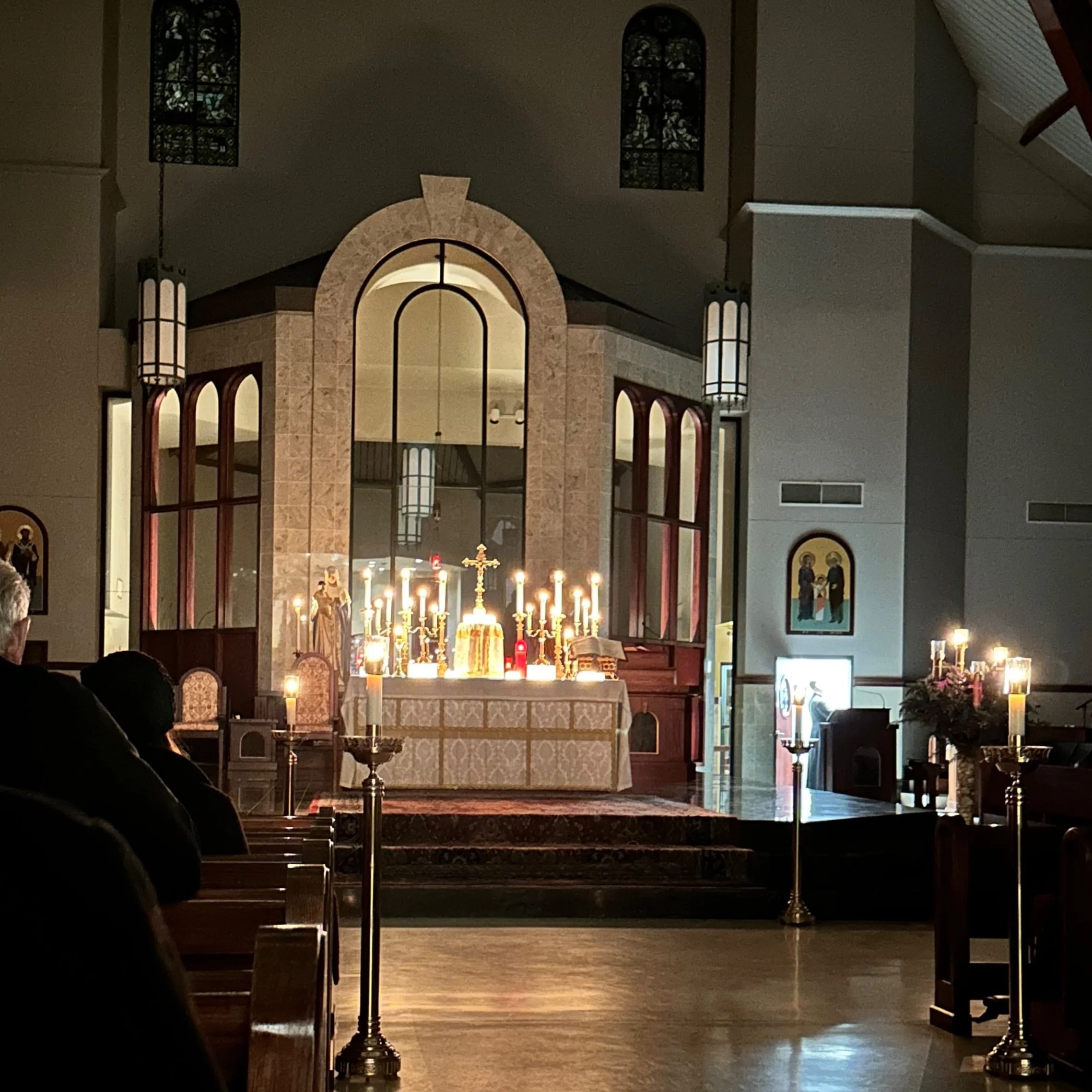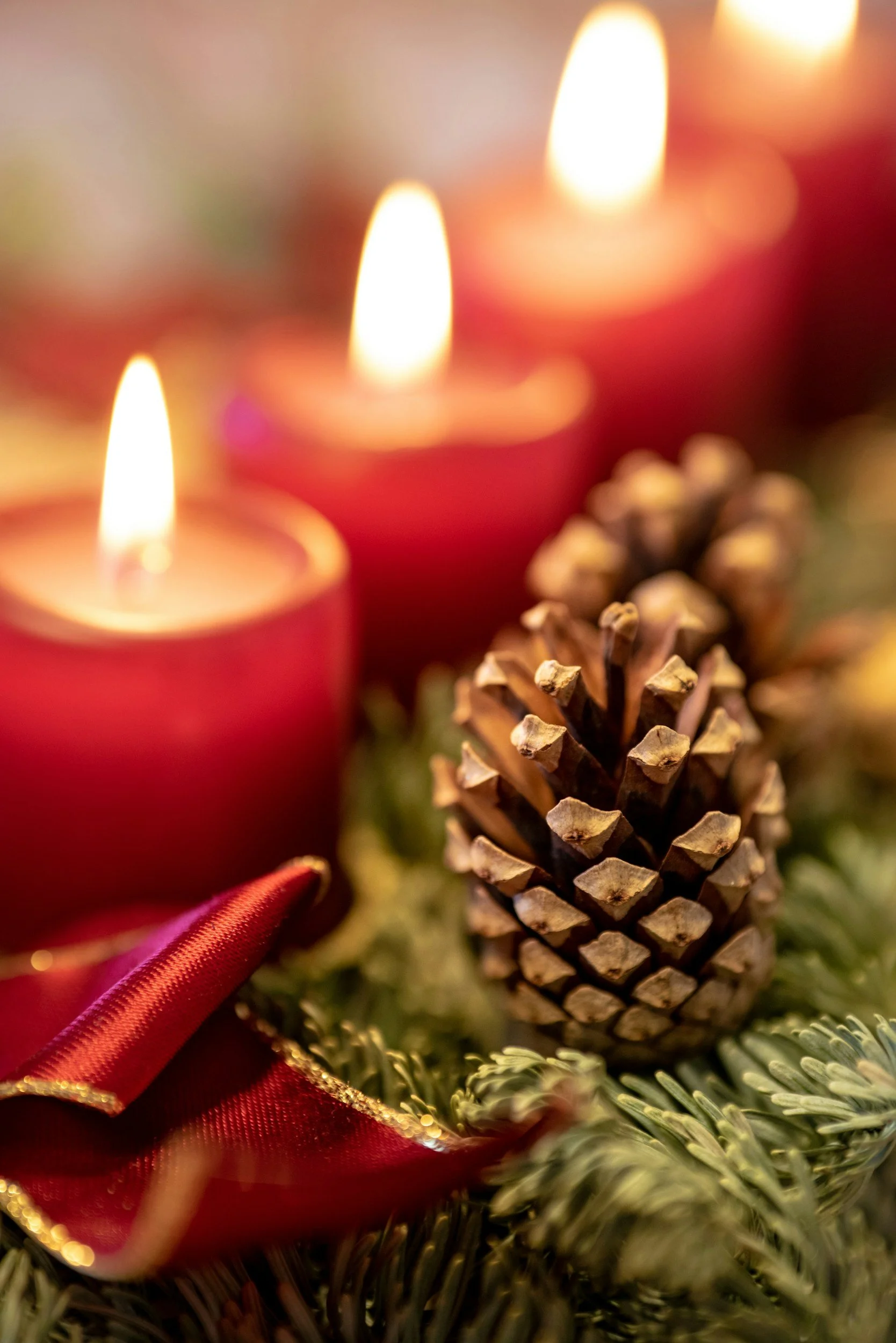The Nativity of Jesus Christ (Christmas)
/Nativitas D.N.I.C.
25 December 2024
Midnight Mass Readings
Throughout the holy season of Advent the Church has called us to give particular attention to a practice that, truthfully, should engage us all year long, no matter the season. That practice, given special attention in Advent but warranted throughout the year, is the practice or preparing for the coming, for the arrival of the Lord. The coming of the Lord has two specific reference points in history. The first coming has already taken place in time and it is the reason we gather today, to observe the birthday of our Lord Jesus Christ. The second coming of the Lord in history is the one we still await when Jesus will return in glory as our Judge and Judge of all the living and the dead. We might call these two comings of the Lord his “physical” arrivals, or his arrivals in human bodily form. In Advent, and truthfully always, we prepare to live anew the meaning of Jesus’ first arrival while, at the same time, we seek to live the truth of the Lord’s birth and salvation for us by preparing for the unknown day when he will arrive in majesty and power. The second reading for this Mass makes reference to these two “physical” arrivals when St. Paul writes to Titus: “The grace of God has appeared, saving all and training us to reject godless ways and worldly desires and to live temperately, justly, and devoutly in this age, as we await the blessed hope, the appearance of the glory of our great God and savior Jesus Christ”. St. Paul writes about a grace of God that has already appeared even while noting that we still await the appearance of the glory of God. One coming, one appearance has happened; the second coming, the second appearance we still await.
While our Christian vocation and our efforts at responding to the call to holiness take place between these two arrivals of the Lord, spiritual authors have noted a helpful interpretation that God arrives in a third way. There is, we can say, another arrival of the Lord who comes to us in a different form between these two physical arrivals. That third way, though perhaps not physical or in human bodily form, is no less real. Between the two historical arrivals of the Lord, he comes to us spiritually by his grace. Yes, the Lord arrives and comes to us by his gift of grace in so many and varied ways. He comes by grace most pre-eminently in the sacraments of our faith, most especially in the Holy Eucharist. The Lord’s grace arrives to us each time we stop life to admit our sins and to be healed in confession. The Lord comes to us in holy Baptism and Confirmation. He arrives with his grace in the sacraments of vocation, whether marriage or holy orders. The Lord arrives to us when we pray, committing both to personal prayer time daily and our communal gathering at Holy Mass, observing each holy day and each Sunday as the Lord’s Day, by which we prepare weekly for the Lord’s return. He comes to us in that blessing to the spiritual life that is meditation and study of Sacred Scripture, God’s Word to us. The Lord arrives by his grace when we seek to live appropriate moral lives and when we give up our selfish ways to serve others. His grace comes to us when we let the sacred teaching of the Church form us as we benefit from the centuries-long reflection of the Church on the mysteries of our faith. So many ways does the Lord’s grace come to us.
Perhaps is makes sense to say that how we live in awareness of that third arrival, that third way of coming, the arrival of God to us by His grace in our spiritual life… perhaps that is the key to how we can prepare to observe Jesus’ birth in a less secular way, and also the key to being prepared for that most important test still to come: preparing for the Second Coming of Jesus. Said another way, if we aren’t living in such a way to experience the arrival of God’s grace to us in our spiritual life, making use of the various examples of grace I stated earlier, then we are more likely to succumb to a secular and commercial preparation for Christmas and, as a consequence of that, we are more likely to succumb to being ill-prepared, “unprayed”, and unconfessed when the Lord comes again as Judge.
So, what lesson can we take for how to actively live that third way that the Lord arrives, his coming to us by grace in the soul, grace in the spiritual life? I want to highlight two practices for our spiritual life. These two practices are reflected in what we see in the Scriptures and in the experiences of so many believers over centuries. The bad news is that these two practices, while simple, are tough and they will stretch you beyond your comfort zone. The good news is that these practices are entirely possible and they will save you.
I think it can be said that the Scriptures show us an interesting pattern before some important action of God. The pattern is that some important action of God is preceded by silence, often long silence. I was doing some reading recently and I came across commentary about the long silence that enveloped God’s People Israel between the last prophet Malachi and the birth of Jesus. In fact, some call this the “400 silent years” after the completion of the Prophet Malachi’s ministry. I am not saying there were no godly events or no scriptural writings during those hundreds of years. The point is that there was no prophet, no one whose commission from God was to say, “Thus says the Lord…” Imagine being a faithful Jew, seeking to live the call to be God’s people in the midst of the world surrounded by people of many different beliefs and hearing nothing. Some Jews, whole generations, would have never known what it was like to live in a time of a prophet. Silence. No new prophet’s word. Four hundred years of silence. Until, that is, the silence was broken, not by a new prophet, but by the very Word of God Himself. An infant’s cry and coo in the still of a Bethlehem night broke the long silence. So, the first practice that promotes God’s arrival to us by grace in the spiritual life is silence. Depending on our vocation and our duties, we will have to be creative with this, especially in family life, depending on how much silence the kids will let you have. Maybe instead of “silence” I could say, “quieting yourself”. When was the last time your TV was turned off for a meaningful length of time? I mean, during the day, not at night when you are asleep. How about removing the ear buds? We’re always ready to listen to someone else; we’re always somewhere other than where we actually are. What freedom could you find by turning the ringer to off on the smartphone? How often do you unplug from constant consumption of information, news, and – let’s be honest – silliness and total wastes of time online? Silence, quieting yourself, is so necessary for prayer because we have to get all the words and messages and thoughts that are not from God out of our heads in order to make room to hear God. It takes time to filter out all the competing ideas and thoughts and words that fill our heads and hearts. If we rarely stop the noise, chances are we rarely quiet down enough to finally hear God – and to know it is God and not our own echo chamber. Four hundred years of silence preceded and prepared the way for God’s own voice to break the silence on this night. Silence is a critical precursor to God’s action. While quieting ourselves takes discipline and is difficult, the good news is countless faithful over centuries know that it works.
And once we have quieted ourselves such that God can arrive by grace in our souls, once we have heard God’s voice, well, we then have something to say, something worth saying. Here comes the second difficult practice. We ourselves experience a new arrival of God’s grace, this third way of coming to us, when we share with others what we have received. What do the Scriptures show us after the 400 years silence was broken by the Infant Word of God echoing throughout earth? Immediately there is proclamation. The angel of the Lord appears to shepherds in the stillness and relative silence of night and says, “I proclaim to you good news of great joy.” A good news that is destined “for all the people”. And following that proclamation, a multitude of the heavenly host joins the angel to break out in praise saying, “Glory to God in the highest.” Thus, a disciple who is in the posture to receive the arrival of God’s grace is a disciple who knows his spiritual life is meant to be shared. That doesn’t seem like it would be hard to do. But it is. It takes vulnerability to share your faith with others. We do not hide our spiritual life or the ways God blesses us. We do not boast, to be sure. But, we are not called to hide what we have received under a basket. We are called to break the silence of a world far from God with the proclamation of good news, the Gospel of Jesus Christ and what He has done for us. We are called to share our faith and our blessings with those around us. In so sharing our faith, others are blessed by the arrival of God for them and God’s grace in us is magnified for having been shared.
We more joyfully observe Christ’s birth, we are better prepared for his second coming, and we make ready the path for God to do something in us, to come to us by grace, when we follow that pattern seen in the Scriptures: fostering silence so that we make room for God to come to new birth in our souls by His grace, and then breaking the silence and the darkness by our own proclamation that “Today is born our Savior, Christ the Lord.”





